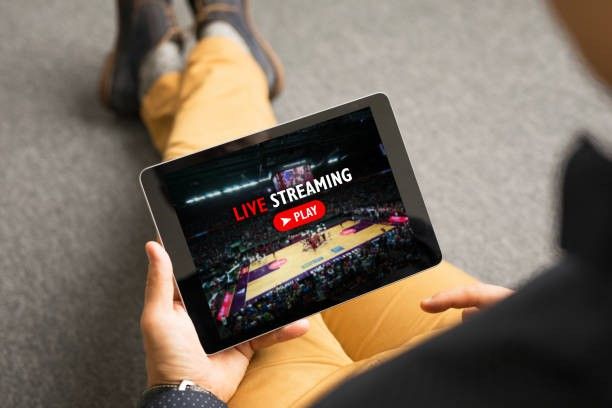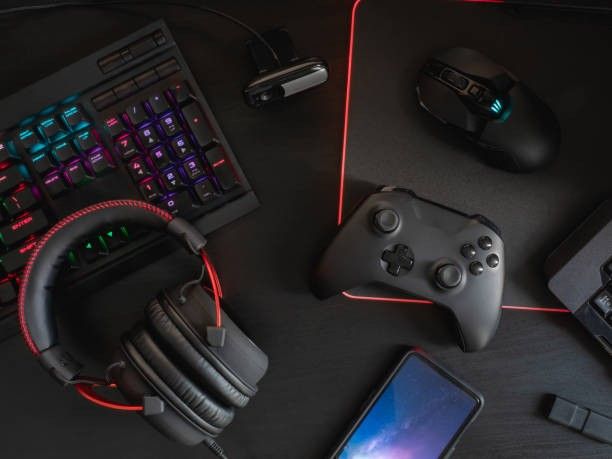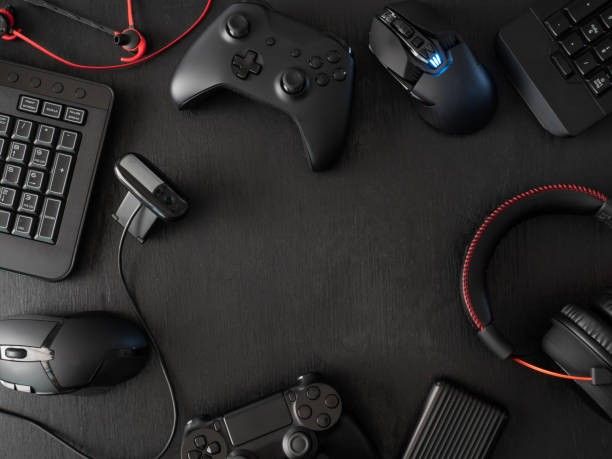Do you love playing video games? What if you could turn that passion into a paycheck? Making money by playing video games is no longer just a dream—it’s a real opportunity for gamers around the world. Whether you’re into competitive esports, streaming on platforms like Twitch or YouTube, or testing games before release, there are many ways to earn.
Esports players win big in tournaments. Streamers and content creators earn thousands of dollars by sharing their gameplay online. Game testers make around $67,813 a year, while game developers often earn over $80,000. This article will explore the most popular and proven ways to make money through gaming. You’ll learn helpful tips, tools, and platforms to get started. Let’s level up your passion into profit!
Can You Really Make Money Playing Video Games?
Yes — you can really make money playing video games. People used to laugh at the idea of "playing video games for a living." Now, it’s a real career path with many ways to make money. Thousands of people around the world make good money by turning their gaming skills and passion into a career. But it’s not as simple as just turning on your console and raking in cash. Like any career or side hustle, it takes time, strategy, and skill.
The Rise of Gaming as a Profession
Gaming has grown from a hobby into a career path. Professional esports now has over 67,000 players competing at the top level. A global survey in 2020 showed that 41.2% of males and 29.1% of females were interested in pursuing a career as professional gamers.
Many universities have noticed this. They now offer courses in esports management and game design, and their facilities help develop new gaming talent. Intel Extreme Masters is a perfect example of this growth—what used to be small tech meetups now fill stadiums with millions watching worldwide.
How Gamers Are Making Money in 2025
Professional gamers create multiple income streams. The biggest esports tournaments now have prize pools of up to $40 million. A professional gamer can earn between $25,000 and $1 million a year. But most successful gamers diversify their income through:
- Streaming on Twitch and YouTube
- Getting sponsors and brand deals
- Making gaming guides and tutorials
- Teaching other players
- Selling their own merchandise
- Testing and developing games
Skills & Equipment Needed to Get Started
Being a pro gamer requires more than just casual gaming skills. You need perfect hand-eye coordination, quick thinking, and good communication. Pro gamers say good sleep helps reaction time and coordination—both vital in competitions. The right gear makes a big difference, too.
Professional gaming keyboards and mice can affect your performance by a lot. You need a powerful PC or console that runs without lag and keeps steady frame rates. Mental strength, self-discipline, and focusing on getting better rather than chasing fame or money are key to long-term success.
Best Ways to Make Money as a Gamer
Gaming isn’t just for fun anymore—it’s now a massive industry where you can turn your love for games into real money. Whether you’re good at playing, enjoy helping others, or just love talking about games, there’s a path for you.
1. Live Streaming on Twitch, YouTube, & Facebook Gaming

Game streaming has become one of the fastest ways to earn money from gaming skills. Twitch alone has over 7.3 million active channels monthly. Players looking to make money through video games will find streaming offers multiple revenue streams that are easy to access.
How to start game streaming
The first step is to choose the right platform for your content. Twitch currently dominates the digital world of game streaming. YouTube Gaming is great for video storage and editing. Facebook Gaming gives you access to its massive user base of 3.05 billion monthly users.
Most newbies choose OBS (Open Broadcasting Software), a free program that handles video encoding and broadcasting. The user-friendly controls make connecting your gaming setup to streaming platforms easy, even though the interface might seem overwhelming at first.
Start by:
- Creating a unique and recognizable channel name
- Setting up OBS Studio or Streamlabs for your stream layout
- Testing your audio, video, and internet speed before going live
- Picking a game you enjoy and has an audience but isn’t too saturated
Growing your audience
Success in streaming is more than just playing games—you need to build a community. Focus on engaging with your viewers, maintaining a consistent schedule and networking with other streamers.
Tips to grow:
- Use social media (Twitter, Instagram, Discord) to promote your streams
- Chat actively during your stream—acknowledge and thank viewers
- Collaborate with other gamers to reach new audiences
- Play trending or niche games that attract viewers
Monetization methods
Once you have an audience, you can earn money:
- Subscriptions: Platforms like Twitch allow viewers to pay a monthly fee, and you get a percentage
- Donations: Viewers can tip you during your streams
- Ad revenue: You earn from ads played during your streams
- Sponsorships: Brands pay you to promote their products to your audience
- Merchandise: Your loyal fans can buy your branded items
Essential gear for high-quality streaming and why it matters
Your stream quality is super important if you want viewers to stay. If your video is blurry or your sound is bad, viewers will leave. That’s why good gear really matters.
Start with a microphone. Clear audio helps your stream sound professional. The USB Microphone for Streaming and Podcasting is a great choice for beginners. Another solid option is the Blue Yeti Nano, which costs around $100 and also gives clear sound.
For video, the 10X Optical Zoom Wireless Streaming Camera (VM33) is a top pick. It has 40X zoom and 8 built-in noise-reduction mics—so you get great quality without needing extra gear. Want to stream in 4K? Go with the VM46 or the DSLR Quality Optical Streaming Camera. It’s NearStream’s best-seller and also works as a webcam.
How to optimize your stream for discoverability
Your stream titles should include keywords to be visible. The platform-specific category systems need proper tags. Great content is key - your game choice can change your visibility. Short-form content on TikTok or YouTube Shorts created from your stream highlights helps reach new viewers.
2. Becoming a Professional Esports Player

Professional esports players can earn a lot of money from playing games. The competitive gaming world now has over 810 million enthusiasts worldwide, creating a big opportunity for skilled players. Whether you’re dominating leaderboards or just starting your competitive journey, here’s what you need to know to get into the pro scene. Tournaments are the gateway to a pro esports career. They range from local LAN events to international championships with million-dollar prize pools. Aspiring pros start by entering online tournaments, building experience, and showing off their skills on platforms like Battlefy, FACEIT, or ESL.
To get up the ranks:
- Choose one game to focus on.
- Join amateur leagues or community events.
- Record gameplay and make a highlight reel.
- Network with other players and tournament organizers.
Success requires dedication, like a full-time job. Players need 40+ hours of weekly practice. Your journey should start with online and local tournaments before moving to bigger competitions. Climbing the competitive ladders helps pro organizations notice talented players.
Sponsorships & teams
Once you start to get noticed, you may be offered a spot on an esports team or attract brand sponsorships. Teams provide benefits like coaching, training resources, travel expenses, and a salary. Contracts vary, so make sure to understand terms like prize pool splits, streaming rights, and exclusivity clauses.
Tips for this stage:
- Consult with an esports agent or lawyer before signing contracts.
- Build your personal brand on Twitch, YouTube, and social media.
- Be consistent in performance and content creation.
Sponsors look for players who are not only good but also marketable and professional.
Top esports games & how to get started
Not all games have a pro scene. If you want to go pro, choose titles with a strong competitive ecosystem. These games offer the biggest prize pools:
- Dota 2 ($369.5 million)
- Fortnite ($193.2 million)
- Counter-Strike ($162.7 million)
- League of Legends ($117.9 million)
Choose one game and master it instead of dividing your attention. Start by practicing fundamentals until you reach a high rank in matchmaking systems. Discord communities and private scrimmages help you connect with skilled players. Red Bull Gaming Hubs provide specialized training facilities to hone your skills in a pro-environment.
Remember, pro gaming careers end around age 26, so it’s crucial to monetize your gaming skills and build your brand early.
3. Gaming Content on YouTube & TikTok
Gaming videos are a way to monetize gaming skills beyond live streaming and competitive play. Gaming videos make up about 15% of all YouTube content and rank 4th most popular category on the platform.
The best type of gaming videos
Different types of gaming videos appeal to different audiences. Players use walkthrough videos to get past tough game sections. These videos are guides and help potential buyers preview games. You don’t need complex editing for tutorials compared to other formats.
Review videos take a different approach by analyzing games critically. They help viewers make smart buying decisions. Many gamers check YouTube reviews before spending their money.
Reaction videos have become very popular. Channels like GamersReact pull in millions of views. Your reactions must be genuine because viewers can spot fake ones right away. On top of that, you need to credit original content creators to avoid copyright issues.
Monetization through YouTube Ads & brand deals
YouTube’s Partner Program has specific rules you must follow. These include Community Guidelines and Terms of Service. Once your YouTube channel meets the eligibility criteria (1,000 subscribers + 4,000 watch hours), you can earn revenue from YouTube ads. The platform has made these requirements stricter to stop spammers and fake accounts from gaming the system.
Not every gaming video gets the same treatment from ads. Videos with too much profanity, adult content, or violence might face limited monetization. Educational content like detailed walkthroughs and tutorials usually gets better ad placement than basic gameplay clips.
Brand sponsorships give gaming creators another way to earn money. Platforms like StreamElements help creators find paid sponsorship opportunities. You can earn by promoting products to your viewers.
TikTok gaming content strategies
Gaming content is in TikTok’s short-form format. More than half of TikTok users watch gaming videos daily. The platform works best when you understand its unique environment. About 82% of TikTok users play games at least once a week.
Your TikTok gaming strategy should focus on game highlights, behind-the-scenes content about game development, and gaming-themed trending formats. Your community engagement through comments and calls-to-action will help optimize growth and viewer interaction.
4. Game Coaching & Tutorials

Your advanced gaming skills can earn you money through coaching without needing huge audiences or tournament victories. Players looking for customized training have made this career path grow faster than ever.
Teaching players on platforms
Platforms like Metafy and GamerSensei let experienced gamers connect with players who want to improve. As a coach, you can create a profile, set your rates, and offer one-on-one sessions tailored to each player’s needs.
Success on these platforms comes from showcasing your achievements, being clear, and breaking down complex game mechanics in a way beginners can understand. Over time, as you get reviews and establish your teaching style, you can build a steady stream of clients and increase your rates.
Paid gaming courses
A scalable income stream comes from creating detailed gaming courses that go beyond one-on-one coaching. Thousands of game-related courses exist on platforms like Udemy, covering everything from gameplay improvement to game development. Course creators can teach at their own pace and sell their content multiple times after creating it once.
Successful course creators know their audience’s skill level. They deliver measurable results like better rankings or mastery of specific techniques.
Guides & eBooks
Game knowledge can turn into profit through written guides and eBooks. You can earn passive income for years by creating specialized eBooks about game strategies, character builds, or economy systems. These digital products are low maintenance after creation.
Smart creators build sales funnels that offer more products after the original eBook purchase. Some expand their reach with audiobook versions that usually sell for higher prices than standard eBooks.
5. Selling In-Game Items & Accounts
Another way to earn money through gaming is by leveraging in-game economies. Many popular games have trading systems, cosmetic items, currencies, and rare collectibles that can be bought, sold, or traded for real money. If you understand how these economies work, you can turn virtual assets into real income.
In-game economies
Games like Counter-Strike and Fortnite let players make big profits from in-demand cosmetic skins, with some rare items selling for thousands of dollars.
Gold farming has become a big business, especially when you have players who find ways to collect in-game currency through repeated tasks. China dominates this market, with about 80% of all gold farmers. The numbers are huge - mainland China alone has around 100,000 full-time workers in professional gold farming operations.
Blockchain games brought something new to the table with tokenized assets such as NFTs. Players can earn royalties every time their items are traded. Take Axie Infinity as an example - players earn cryptocurrency by breeding and battling digital creatures that exist as NFTs.
Selling high-level accounts
The account market values competitive, high-level accounts the most. Buyers aren’t interested in spending time to reach endgame content. Account prices depend on several factors - character levels, rare gear, what’s in the inventory, how much in-game money they have, and any special items from time-limited events.
There’s another reason these accounts sell well - high-ranking players want Smurf accounts to play at lower levels. Sites like PlayerAuctions and PlaySwap make these trades easier. PlayerAuctions lets you trade in more than 300 games, including World of Warcraft, Final Fantasy XIV, and Genshin Impact.
Risks & legal considerations
Selling accounts breaks most games’ Terms of Service and can get accounts banned. Blizzard’s license agreement is clear - “you may not sell in-game items or currency for ‘real’ money.” Some developers have created their own systems to curb third-party trading. Blizzard, to name just one example, lets players buy tokens with real money and auction them for in-game currency.
On top of that, it’s risky to trade accounts because of potential credit card fraud and chargebacks. The legal side is clear - gamers don’t actually own virtual goods. They just get limited licenses to use these items in the game while developers keep all intellectual property rights.
6. Being a Game Tester

Game testing provides a steady career path where you get paid for playing games without the public spotlight of streaming or esports. The role is for people who like to work behind the scenes. Quality assurance specialists test games to find bugs and ensure smooth gameplay.
How to get hired for beta testing & QA jobs
Companies look for testers with keen attention to detail, strong analytical skills, and excellent communication abilities. Major companies like Blizzard, Epic Games, and Riot Games don’t always require formal degrees for entry-level positions. However, candidates can gain an advantage by getting the International Software Testing Qualifications Board (ISTQB) certification through the American Software Testing Qualifications Board.
Start with beta testing programs. You can join open betas that welcome everyone or apply for closed betas with selective entry. These experiences look great on resumes and help you land paid positions.
Best platforms for finding game-testing gigs
Here are some trusted platforms that connect gamers with testing opportunities:
- PlaytestCloud – Major studios like Ubisoft and Gameloft partner here. You’ll need to pass qualification tests before paid work
- Testbirds – Better-paying jobs go to testers with higher experience points
- BetaTesting – The biggest tester community pays $15-$30 for 45-60 minute tests
- Upwork – You can find project-based testing work here
Pros & cons of game testing as a career
Professional game testers earn around $61,000 yearly according to Glassdoor. Experienced testers can make up to $76,000 per year. The job offers great industry exposure and can lead to other gaming careers.
The role comes with challenges, too. Testers often work long hours during “crunch time.” Most jobs are contract-based instead of permanent. The work involves repetitive tasks that might feel boring rather than fun. The field sees high turnover rates - 43% of testers leave their jobs within a year.
7. Developing & Selling Your Own Games
Building and selling your own video games is the ultimate gaming venture. You control both creative direction and potential earnings. Modern development tools and user-friendly platforms have made this career path more available than ever before.
How to create indie games (tools & resources)
Your technical experience should guide your choice of development tools. Beginners often start with visual engines like Unity or Godot, which let you build games without deep programming knowledge. If you’re a programmer, consider using game frameworks in languages you already know for more control.
Free assets from sites like itch.io and OpenGameArt help you prototype while focusing on gameplay. Successful indie games usually feature unique mechanics or art styles. A complete game loop with win/lose conditions and restarts is essential for a polished product.
Selling games on Steam, Itch.io, & mobile app stores
Steam leads PC game distribution but has specific requirements and fees. Itch.io is a more open option with developer-friendly terms. Creators can set their own prices or let players choose what to pay with minimum thresholds. The platform handles distribution and gives developers full control over their game’s landing page.
Mobile development has platform-specific rules. Apple’s App Store requires builds from the latest Xcode version and iOS SDK. Games must work on supported devices and include detailed product information and privacy details. Steam’s rules require consistent pricing across platforms, so you can’t offer lower prices elsewhere.
Crowdfunding & early access models
Kickstarter is good for games based on nostalgia, proof-of-concept projects, and experimental titles. Good campaigns need planning, realistic funding goals, stretch targets, community interaction, and thoughtful backer rewards.
Early Access is another way to fund development by selling games before completion. This approach gives you two launch opportunities - the original Early Access release and the full version. You can earn money throughout development. But you’ll need regular updates and active community management to keep players confident in your project.
8. Affiliate Marketing for Gaming Products

Affiliate marketing is a great way for gamers to make money as a gamer without being a competitive player or building a streaming following. The gaming industry is valued at $113.00 billion and will be $300.00 billion in five years. This is a big deal as it means there’s an opportunity to turn your gaming knowledge and influence into income.
Promoting gaming gear, software & accessories
Gamers spend a lot of money on their hobby. This spending pattern allows affiliates to promote products from $20.00 games to $5000.00 gaming PCs on the same platform. Popular products include:
- Gaming peripherals (headsets, keyboards, mice)
- High-performance PCs and components
- Gaming chairs and comfort accessories
- Game guides and tutorials
- Software and license keys
Quality trumps quantity in affiliate marketing. You should test products before promoting them—your honest opinion becomes your best selling point. Creating helpful, informative content that solves gamers’ problems builds trust and drives sales.
Best affiliate programs for gamers
These trusted gaming affiliate programs offer competitive commissions:
- Razer - Up to 3% commission on peripherals and gaming chairs
- Microsoft - Good program with link builder tools
- NVIDIA - Best for PC gamers
- Twitch - Good for streamers
- Amazon Associates - Huge product selection with cross-selling benefits
How to build a passive income stream
You can build lasting income through gaming affiliate marketing by focusing on content that adds value. Build your authority with gaming tutorials, detailed reviews, or comparison guides. Good SEO practices and relevant gaming keywords will get your content seen.
Analytics tools from affiliate programs will help you track your results. Use these insights to improve your strategy and test different approaches that work for your audience. Your reach and income streams grow when you expand to multiple platforms—websites, YouTube, and social media.
9. Playing & Monetizing Play-to-Earn (P2E) Games

Play-to-earn (P2E) gaming has changed how players can monetize video game skills through blockchain technology. You don’t need streaming fame or esports talent to make money anymore.
What are blockchain & NFT games?
P2E games work differently from traditional gaming. Players get cryptocurrency tokens or NFTs (non-fungible tokens) as rewards when they complete in-game objectives. These blockchain games turn virtual items into tokenized assets that players truly own. The time you spend playing translates to what you can earn as digital assets hold real-life value.
Players earn native cryptocurrencies like MANA from Decentraland or unique NFT assets like characters, equipment, or virtual land. Players can trade these assets on open marketplaces and sometimes use them on multiple gaming platforms.
Best P2E games to make money
Axie Infinity is leading the P2E gaming world. Players collect, breed, and battle cute creatures called Axies - each one a unique NFT. The game rewards players with Smooth Love Potion (SLP) and Axie Infinity Shards (AXS) tokens through battles. Players can exchange tokens for real money, stake them for passive income, or trade rare NFTs on marketplaces.
The game runs on its own Ethereum sidechain called Ronin to keep transaction costs low. The Sandbox offers another great option where players create, buy and sell virtual real estate while making money from user-generated content. Immutable has joined the scene with over 300 free-to-play crypto games across different genres.
Risks & sustainability of P2E gaming
P2E gaming has some big challenges that players should consider. Investors need to watch out for market volatility since cryptocurrency values can change drastically. Getting started can cost a lot - simple Axies costs about $256, while premium traditional games cost just $90.
Many P2E ecosystems struggle with sustainability as they need new players to join in rewarding existing ones. The rules and regulations haven’t caught up yet, which creates uncertainty about future operations. Security is another risk - hacks and exploits can result in big financial losses. The games themselves often fall short as they focus more on making money than creating fun gameplay.
10. Writing About Video Games

You can turn your video game knowledge into money without being a good player. Content creators in the gaming industry earn around $4416.00 monthly from entertainment websites.
Becoming a gaming journalist or blogger
The path to game journalism requires commitment and persistence. A journalism degree can help, but it’s not necessary. Your personal blog can showcase your writing skills and gaming expertise. Big names like Polygon, Kotaku, and IGN want writers who know gaming culture and can provide thoughtful analysis.
You’ll start with news coverage before moving to complex stories. Read industry publications to get a feel for their style and audience. Gaming events are great opportunities to build connections with editors and developers.
Freelance writing for gaming websites
Many gaming websites and magazines hire freelance writers for reviews, guides, and feature stories. Start by pitching ideas to platforms like IGN, Game Rant, or niche indie blogs.
A professional portfolio, clear writing style, and passion for games will help you land paid gigs. Sites like Upwork, Freelancer, and ProBlogger also post relevant opportunities. Pay rates vary depending on the publication. Big platforms like Polygon pay about $300.00 per article, while smaller sites offer around $50.00.
Monetizing a gaming blog
Gaming blogs attract advertisers because of high user engagement. Here are the main ways to earn:
- Display advertising through networks like Google AdSense
- Affiliate marketing promoting gaming products (earning commissions on sales)
- Sponsored content from gaming companies
- Subscription models offering premium content
- Digital products such as guides or courses
The best gaming blogs stand out by publishing quality content regularly. Good SEO practices help boost visibility and traffic, which leads to better revenue. The gaming industry’s $197.00 billion annual value creates plenty of opportunities for content creators in this space.
How Much Money Can You Make from Gaming?
The gaming industry offers incredible money-making opportunities. You can earn anything from a modest income to millions of dollars. Many aspiring pros want to know how to make money playing video games and set realistic income expectations.
Income Breakdown by Gaming Career Path
Your income depends on your role in the gaming industry. Game developers earn between $81,500 and $124,000 per year. Senior developers earn more, with yearly salaries of $131,500 to $176,000. Game programmers make anywhere from $24,000 to $145,500 per year.
Game testing jobs are a stepping stone to the industry. These positions pay between $34,000 and $41,500 annually. Video game designers earn a median salary of around $74,044. Designers in high-cost areas like San Francisco can make up to $96,752.
Professional gamers in the US earn an average of $99,508. The range is huge—from $43,169 to $471,748. New pros make $1,000-3,000 monthly. Mid-tier competitors with some experience can earn $3,000-10,000 monthly.
Top Earning Gamers & How They Got There
Johan "N0tail" Sundstein is the highest earning gamer. He has made over $7 million mostly from Dota 2 tournaments. Kyle "Bugha" Giersdorf got $3 million by winning the Fortnite World Cup in 2019.
Tournaments are the best way to earn big money. Dota 2 players dominate the earnings charts - all but one of the top 40 earners play this game. Content creation is another path to success. Streamers like Ninja have built fortunes through subscriptions, sponsorships, and merchandise sales.
Passive vs. Active Income in Gaming
Gaming careers have both active and passive income streams. Active income requires direct time investment—tournament winnings, streaming hours, and coaching sessions—while passive income flows in with minimal effort.
Game development brings in passive income when your game keeps selling. But the work to be done upfront and constant updates mean few gaming income streams run on autopilot.
Essential Gear & Setup for Making Money in Gaming

Your success in the gaming industry depends on choosing the right equipment. Quality gear can boost your performance a lot and help you stand out as the competition gets fiercer.
Best Streaming & Recording Equipment
Sound quality matters more than video when you're aiming to profit from gaming or content creation.
The AM15X USB microphone delivers excellent sound for streaming and podcasting without extra gear. For professionals, consider the AM25X USB & XLR Condenser Microphone, offering versatility and studio-grade performance.
If you’re getting started, the 4K Wired Streaming Camera VM20 doubles as a webcam and delivers crisp video. For enhanced mobility, try the AWM20T Wireless Microphone or the AMIX40U Portable Audio Mixer to balance your sound levels with ease.
Good lighting makes streams look much better. Pair your gear with LED lights or invest in a full Streaming Kit or Podcasting Kit to level up your production value.
High-Performance Gaming PC & Console Setup
Performance matters when it comes to competitive or content-driven gaming. A high-end gaming PC with a fast processor, enough RAM, and a powerful graphics card lets you play the latest games without lag while streaming or recording. If you’re using a console like a PlayStation or Xbox, make sure it’s the latest generation to keep up with top-tier titles.
Good internet speed is just as important—streaming or uploading content with a weak connection can cause buffering or delays. A comfortable gaming chair, responsive keyboard, and mouse, or ergonomic controller also enhance your experience and stamina during long sessions.
Must-Have Software & Editing Tools
Quality content creation needs the right software tools. OBS Studio is the go-to free streaming platform with tons of customization options. Video editing options range from Clipchamp for beginners to Adobe Premiere Pro at $20.99 monthly for pros.
InVideo works well for content creators who edit on their phones. Content creators who want to make money playing video games should focus on color grading and motion tracking features. Software that offers tutorials and guided editing tools will help new editors learn faster.
Challenges & Tips for Making a Career in Gaming
A career in gaming just needs you to navigate an intensely crowded marketplace. Standing out takes more than gaming skills. Steam has over 800 million registered games, and all but one of these games remain unplayed. This creates both formidable obstacles and tremendous opportunities for aspiring gaming professionals.
The Competitive Nature of the Gaming Industry
The gaming industry is highly competitive and fast-moving. Around 83% of gaming leaders say constant innovation is key. Now, it’s not just game studios competing—tech giants and streaming platforms are also in the race.
Success in this field combines technical and artistic excellence with business knowledge. You’re not just competing with other gamers—you’re also competing with movies, TV, and social media for people’s attention. That’s why gaming companies spend a lot on community building. In fact, 64% of marketers say word-of-mouth is the best kind of promotion.
How to Stay Consistent & Grow Your Brand?
One of the biggest challenges for gamers is consistency. Your performance may go up and down depending on the day or the game. But building a career means being reliable, confident, and calm even when things don’t go as planned.
You can be more consistent by following a regular gaming schedule, practicing often, and working with people who help you stay focused. To grow your brand, listen to what your community wants. Work with other creators who know your audience and platform. Stand out by sharing helpful tutorials, tips, or fun content that keeps people coming back.
Avoiding Scams & Legal Trouble in Gaming
Scammers target gamers with fake offers and phishing links. Stay safe by using two-factor authentication, trusted trading platforms, and reading the game’s rules. Selling accounts or in-game items can get you banned. Always follow the legal rules about data and online content to avoid fines or losing your reputation.
Conclusion – Is Gaming a Viable Career?
Gaming has become more than just a hobby—it’s now a real career path for many people worldwide. From professional gamers and streamers to game developers and testers, there are many ways to earn money doing what you love. But success in gaming doesn’t come overnight. It takes time, practice, good equipment, and smart planning. Quality tools like the NearStream VM33 and VM46 can help content creators produce better videos and grow faster. The gaming industry is growing fast and offers amazing opportunities for those who are serious and hardworking.
Want to take your gaming career to the next level? Start with the right gear. Visit NearStream.us and explore professional streaming equipment today!





































































